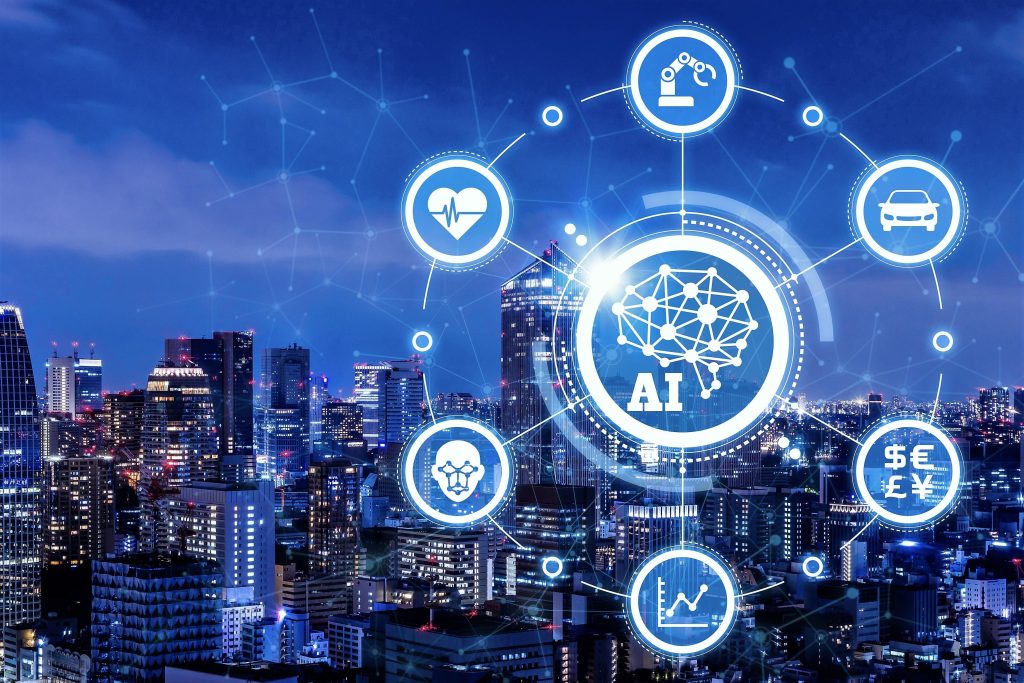In the realm of project management, the need for efficiency and precision is paramount. As organizations strive to meet deadlines, allocate resources effectively, and stay within budget, the integration of Artificial Intelligence (AI) has emerged as a game-changer. AI has the potential to revolutionize project management by streamlining workflows, enhancing decision-making, and ensuring optimal resource allocation. In this blog post, we’ll explore how AI is reshaping project management and discuss its various applications.
Enhancing Task Assignment and Resource Allocation

One of the key challenges in project management is assigning tasks to team members and allocating resources efficiently. AI-powered systems can analyze historical project data, team members’ skills, and resource availability to make data-driven recommendations. These recommendations help project managers make informed decisions, ensuring that tasks are distributed effectively and resources are utilized optimally. This not only saves time but also minimizes the risk of overloading team members or underutilizing resources.
AI can also factor in dependencies between tasks, helping project managers identify critical paths and potential bottlenecks. By considering various scenarios and constraints, AI algorithms can suggest adjustments to the project schedule, allowing for better resource management and improved project outcomes.
Real-time Data Analysis for Informed Decision-Making
In the fast-paced world of project management, decisions must often be made quickly to keep projects on track. AI can provide project managers with real-time data analysis capabilities, enabling them to make informed decisions promptly. For example, AI-powered dashboards can display project progress, highlight potential issues, and recommend corrective actions. This empowers project managers to address problems proactively, reducing the likelihood of delays or cost overruns.
Moreover, AI can analyze historical project data to identify patterns and trends. By learning from past projects, AI systems can make predictions about potential risks and opportunities, helping project managers develop mitigation strategies and capitalize on favorable conditions.
Predictive Analytics for Improved Forecasting
Forecasting is an essential aspect of project management, as it allows organizations to anticipate future resource needs and potential challenges. AI excels in predictive analytics by analyzing vast amounts of data to identify patterns and make accurate forecasts.
AI-driven forecasting models can predict project completion times, resource requirements, and budget estimates more accurately than traditional methods. This enables organizations to allocate resources more efficiently, avoid last-minute crises, and enhance stakeholder satisfaction.
Automating Routine Tasks for Efficiency

Project managers often deal with a multitude of routine administrative tasks that can be time-consuming and prone to human error. AI can automate these tasks, allowing project managers to focus on more strategic activities.
For instance, AI-powered chatbots can handle routine communications, such as status updates and scheduling meetings. This reduces the administrative burden on project managers and ensures that essential information is communicated consistently and efficiently.
Risk Management and Contingency Planning
Effective risk management is critical in project management, as unforeseen issues can derail even the most well-planned projects. AI can assist in identifying potential risks by analyzing project data and external factors. It can also recommend mitigation strategies and contingency plans to minimize the impact of unforeseen events.
Furthermore, AI can help project managers simulate various scenarios to assess their potential impact on the project’s schedule and budget. This proactive approach allows project teams to be better prepared for unexpected challenges. In conclusion, AI is rapidly transforming project management by offering advanced capabilities in task assignment, resource allocation, real-time data analysis, forecasting, task automation, and risk management. By harnessing the power of AI, organizations can optimize workflows and schedules, reduce costs, improve project outcomes, and ultimately enhance their competitiveness in today’s dynamic business environment. As AI continues to evolve, its role in project management will only become more significant, making it a must-have tool for organizations looking to excel in their project endeavors.

Leave a Reply